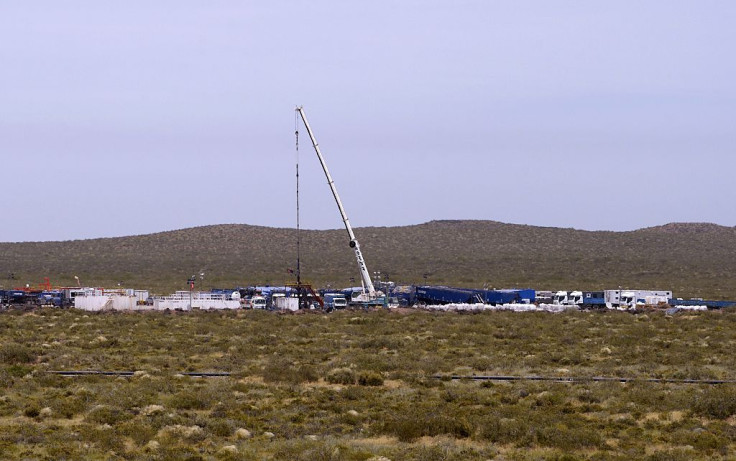Fracking Well Microbes Could Boost Energy Production, Help Find Life On Mars

A study exploring multiple fracking wells located across the U.S. revealed the presence of several methane-producing microbial communities — bacteria and viruses that survive despite living in high-pressure environments.
Fracking or hydraulic fracturing is a well-stimulation technique in which pressurized liquids, sand, and other chemical add-ons are injected deep into the Earth in order to create crevices in rock formations for extracting oil or natural gas.
When a group of researchers from Ohio State University took samples from five such facilities to analyze these crevices, they found microbial life. Though some scientists have reported similar results in the past, the group took a unique approach and provided detailed insight into how complex the microbes really are and how they interacted.
"These wells are so deep and hard to sample — access to the liquid in the wells offered us a unique opportunity to understand how these microbes make a living in these briny, high-pressure, high-temperature conditions," study co-author Michael Wilkins said in a statement.
The group took the samples into controlled lab grade conditions and manipulated the environment in order to draw the microbial community out of hiding. The idea proved more successful than regular field experiments and helped the team classify the diverse range of bacteria and viruses in fracking wells. The findings of the work indicated feeding on chemical material injected into the fissures — chemicals, stabilizers, and water — has been contributing to their diversity.
But that’s not it. When the researchers added a chemical called glycine betaine to the chemicals, they found that the microbes were producing methane. According to the researchers, the finding indicates that these wells are holding much more energy than the fracking industry is targeting in the first place.
"We found here that multiple wells have similar microorganisms, which are capable of producing methane,” study co-author Mikayla Borton added. “In theory, that could mean that stimulating the microbial community in some way could increase energy yields. That's not been done in shale yet, but it's done in other systems, including in coal mining".
However, in a broader application, the discovery could also inform scientists working to find life beyond Earth. "Finding life in these rocky, salty, hard-to-survive conditions would not be dissimilar to finding life on another planet," Kelly Wrighton, the lead author of the study, said in the statement.
"If we want to think about what life would be like if it could exist on Mars, this is probably a pretty good place to start."
That said, it is also worth noting that the researchers think further analysis of these microbes could even have implications on human health. Essentially, these bacteria and viruses are pretty similar to those found in protein-rich ecosystems like the human gut and soil. So, bettering our understanding of the chemistry and interaction of these communities could prove critical in answering major human health-related problems such as how plaque forms when we have a cardiovascular disease.
© Copyright IBTimes 2024. All rights reserved.











